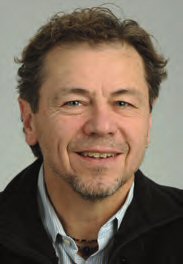 SEJ President's Report
SEJ President's Report
By DON HOPEY
When the Obama administration issued its National Climate Assessment in May, the story broke big on front pages across the nation, throughout the digital platforms and at the top of evening newscasts.
While some were critical of how the White House press corps was more focused on Bengazi than longer growing seasons or rising sea levels, I prefer to take a glass-half-full look (which, all in all, is more water than the Texas Panhandle or California’s Central Valley may soon have available).
I choose to think the overall coverage reflected more than a maturing of the issue. It also reflected a maturing of the environment beat and its growing importance in everyday life. With apologies to the vegetarians among us, we’re not a garnish, the green salad or even a side dish anymore; really haven’t been for a while now. We are, increasingly, the meaty main course.
Whether due to climate change, wildfires, ocean acidification, glacial and ice sheet melt, drought, nuclear power or shale gas drilling and “fracking,” environmental stories are regular and significant parts of the daily newsfeed, commanding readers’ attention and fostering public discussion and debate.
And the Society of Environmental Journalists has played a role. At SEJ’s annual conferences we’ve provided members with exposure to environmental newsmakers – we had James Hansen at SEJ’s 1993 conference in Durham, N.C., and Steve Schneider at Stanford in 2007, to name just two of many – and inspiration to tell the important stories. That’s helped foster the kind of solid reporting on environment, health and science that is essential to our society.
For confirmation of the beat’s maturity look no further than “Toms River: A Story of Science and Salvation,” Dan Fagin’s compelling account of a New Jersey town trapped in a polluted nightmare of childhood cancer clusters and corporate compromise. It won the 2014 Pulitzer Prize for General Nonfiction, and was hailed by The New York Times as “a new classic in science reporting.”
Fagin isn’t alone among our members in being so honored. David Philipps of The Gazette, in Colorado Springs, CO, won this year’s Pulitzer for National Reporting for his examination of the mistreatment of wounded combat veterans after their discharge from the military. Other SEJ members who have earlier placed a Pulitzer Prize on the first line of their distant-in-the-future obituaries include Mark Schleifstein, Ken Weiss, Robert Semple and Elizabeth McGowan.
Also this year, for the first time, SEJ’s Annual Awards for Reporting on the Environment attracted more than 300 entries. Although the awards are an imperfect measure, they highlight again the interest in the kind of significant journalism that is our goal individually and within SEJ.
Fagin, a former New York Newsday environment reporter and SEJ board member and president, told me recently that SEJ provides an energizing community of support.
“(It’s) a place where a diverse group of people come together to learn from each other, support each other's work and identify in-common challenges and opportunities,” said Fagin, now director of the Science, Health and Environmental Reporting Program at the Arthur L. Carter Journalism Institute at New York University.
“We give to SEJ and we take from it, and the collective result of these thousands of exchanges, large and small, is a sort of intellectual ‘power grid’ we tap to supercharge our storytelling about the ideas, people, places and things that will determine the future of life on Earth.
“There is nothing quite like the feeling of flying home from an annual conference on Sunday morning, exhausted (and maybe even a tiny bit hungover) but exhilarated about what you'velearned and brimming with ideas about how to apply that knowledge to your next story, and the one after that.”
So at SEJ’s upcoming annual conference in New Orleans Sept.3-7 (earlier than usual this year; time to register if you haven’t yet), let us celebrate the environment beat’s new prominence. We should not do so too loudly because many of the stories we must tell are not happy ones, but with pride because they are important ones. And we should not celebrate excessively long, because we know that things can turn on a dime or an election or a corporate bottomline, and there is always much, much work yet to do. But we should do so with some satisfaction in our job done well.
I hope to see you in NOLA in September for the celebration. And on second thought, maybe we will make some noise.
Here’s the link to register: www.sej.org/sej-annual-conferences/registration.
You should do it now.
Don Hopey covers environment at the Pittsburgh Post-Gazette, and teaches at the University of Pittsburgh and the Pitt Honors College Yellowstone Field Course.
* From the quarterly newsletter SEJournal, Summer 2014. Each new issue of SEJournal is available to members and subscribers only; find subscription information here or learn how to join SEJ. Past issues are archived for the public here.













 Advertisement
Advertisement 



